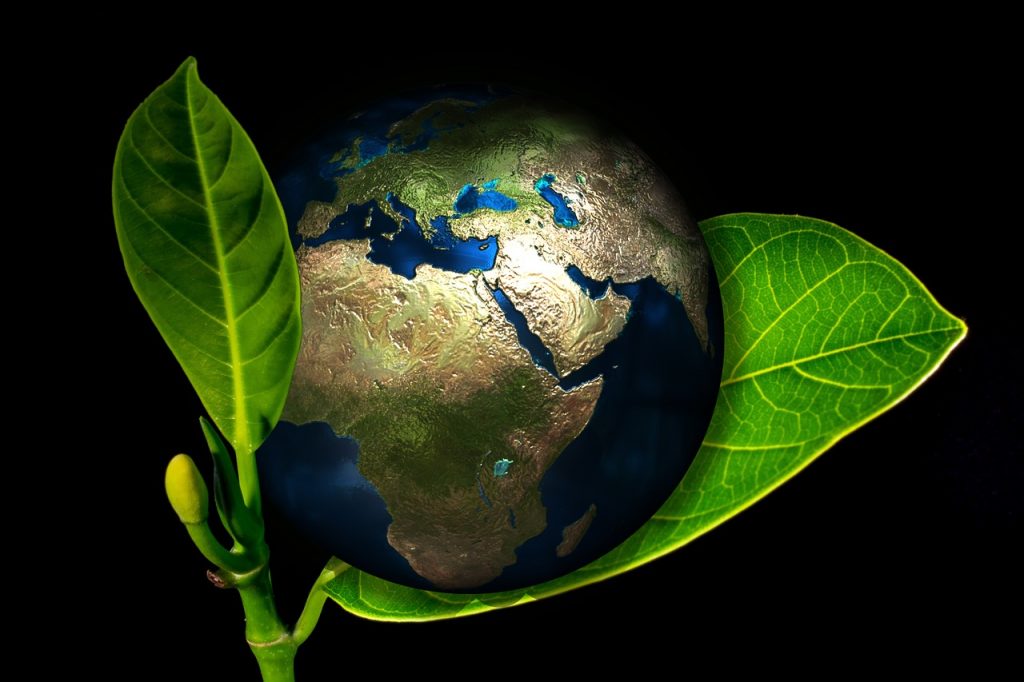The year 2020 has ushered in a new, uncomfortable way of life for global citizens. Suddenly, most of us are confined to our homes, with little opportunity for social interaction, and fearful of a dangerous virus. As the COVID-19 pandemic continues to wreak havoc around the world, however, there’s an unlikely positive to shelter-in-place orders: Drastically reduced carbon emissions and air pollution.
As early as March 8, researchers determined that COVID-19 has unexpected health benefits. Ultimately, a group of seven academics found that “COVID-19 reduces economic activity, which reduces pollution, which saves lives.” That’s not to say that the coronavirus pandemic is a good thing — rather, the study connects reduced human activity with a significant reduction in air pollution.
And, from an environmental standpoint, fewer global emissions is just the beginning. There are myriad ways in which we can turn this unprecedented global pandemic into an opportunity for improved global sustainability. There’s no reason that we can’t prioritize both public and planetary health while also practicing social distancing. For starters, sustainably-minded global citizens can shut off tap water whenever we wash our hands and use eco-friendly cleaning supplies.
Of course, it’s also essential to keep the planet in mind once we make it to the other side of COVID-19. Let’s explore the ways in which you and your family can cultivate sustainability during this pandemic and beyond.
How Quarantine Measures Help to Reduce Carbon Emissions
Scientists have touted the apparent connection between climate change and public health for years, yet their concerns fell largely on deaf ears. Now, however, the reality of COVID-19, and its public health repercussions, are impossible to ignore. According to Time magazine, “decreased air pollution has immediate public health benefits.” And we’re already seeing those benefits.
Analysts around the world are reporting a rapid fall in air pollution, CO2, and nitrogen dioxide numbers in the wake of COVID-19. The results in New York City are particularly telling. Even before Governor Andrew Cuomo’s March 22 lockdown of “nonessential business” throughout the entire state, the BBC reported a nearly 50% reduction of carbon monoxide in NYC compared with the previous year.
Vehicles of all types have a detrimental impact on air quality. Much of the blame is placed on large trucks, which emit approximately 11 million tons of carbon dioxide into the atmosphere on an annual basis just while idling. When coupled with idle time from smaller vehicles and actual driving time, it’s easy to see the connection between emissions and air pollution.
Water Conservation During Self-Isolation
Of course, we need to consider water alongside air quality, both during quarantine and once the social distancing ordinances are lifted. Water is a big deal these days, as washing our hands often is one of the easiest things we can do to stop the spread of COVID-19. Medical professionals recommend that you scrub your hands for at least 20 seconds during the handwashing process. Yet there’s no need to keep the water running during this time, and turning the tap off is a small act that can make a big difference in the long run.
You can further embody the principles of sustainability by investing in water-saving technology. Improving your home’s water efficiency makes for a satisfying project while you’re stuck at home. Consider installing a low-flow showerhead, tankless water heater, or faucet aerator and watch how they help reduce your family’s water usage, often significantly. The best part? Hardware stores are among the types of businesses deemed “essential,” so you won’t even need to wait for your new fixtures to be shipped.
Being Mindful of Our Purchasing Power
By purchasing fixtures and appliances that have a positive environmental impact, you’re sending a big message to manufacturers. Now, more than ever, your status as a consumer can impact future product production, and help increase the supply of eco-friendly products, from dishwashers to cleaning supplies.
Cleaning products may be hard to come by these days, as citizens across the globe scramble to buy hand sanitizer and disinfectants in bulk. For many people, the health of the environment isn’t a factor as they simply purchase whatever hygiene supplies are available, no matter the ingredients. But there’s no need to panic, and you can still make mindful purchasing decisions in these crazy times.
When you next visit the grocery store, keep an eye out for cleaning products that are good for your health and the environment. One way to do this is by developing a chemical hygiene plan. Typically used by employers to reduce the risk of chemical exposure among workers, a chemical hygiene plan can be easily adapted to meet the needs of everyday citizens. Start by identifying hazardous chemicals typically found in cleaning products, research the ways in which those chemicals can affect your overall health, and seek out alternatives.
Final Thoughts
In a time of global pandemic, we have the perfect opportunity to seek out alternatives and cultivate a more sustainable lifestyle. Ultimately, saving the planet is up to humanity, and our actions will make all the difference.

 Alternative Energy HQ solar power for homes, wind energy, and bio fuel issues
Alternative Energy HQ solar power for homes, wind energy, and bio fuel issues







